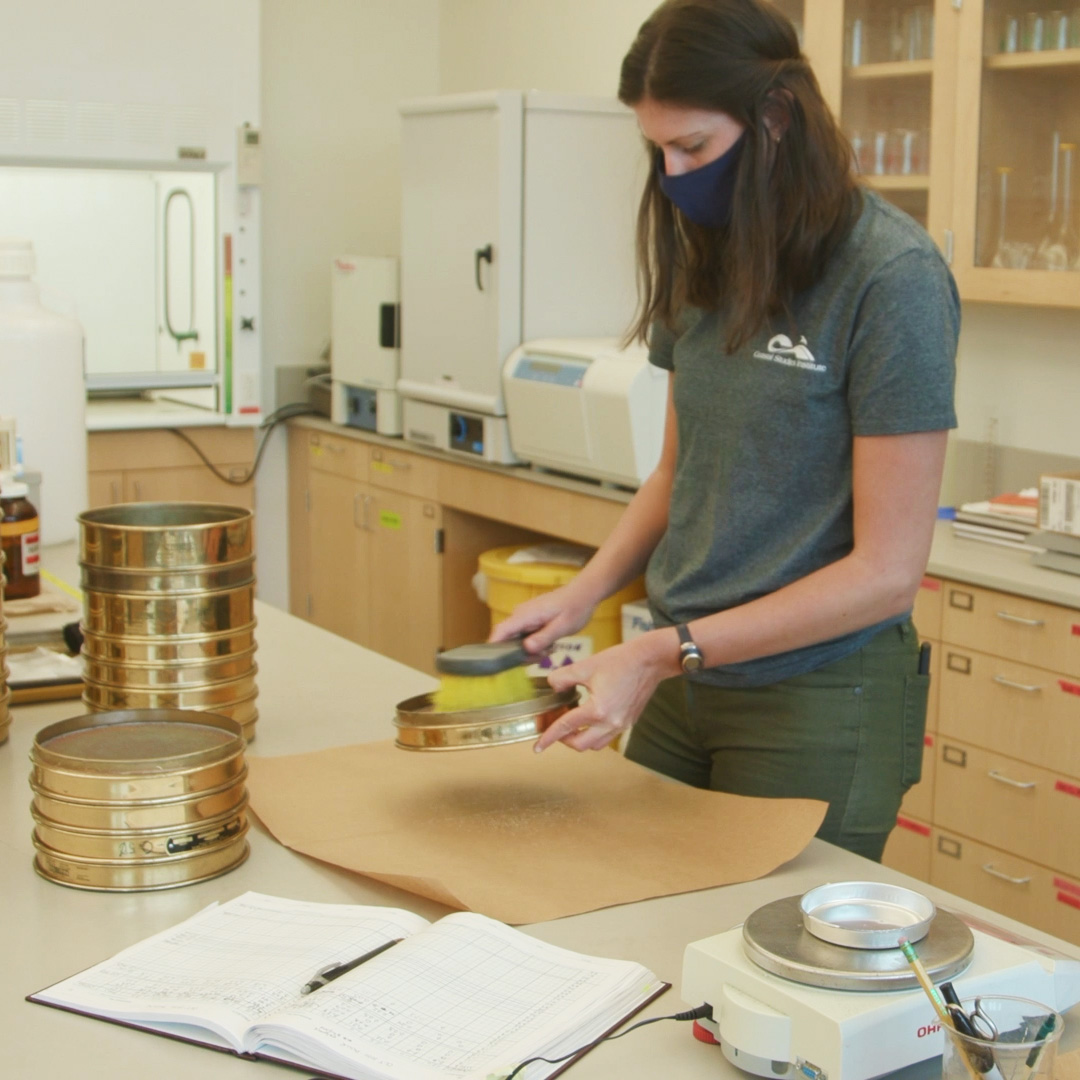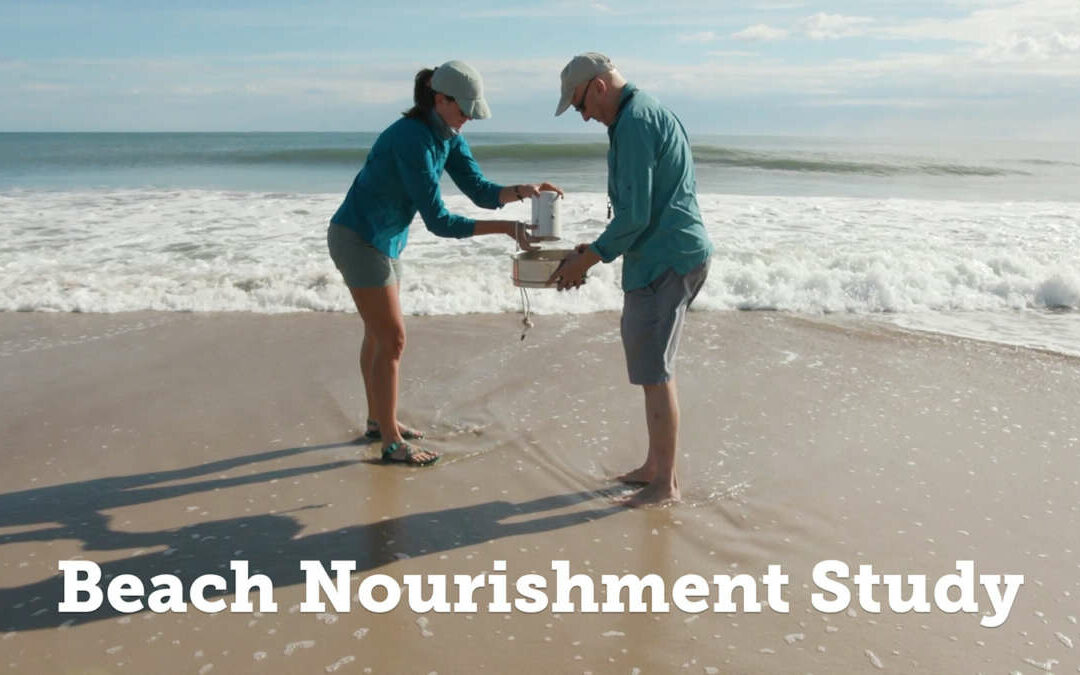Beach replenishment is the practice of rebuilding and restoring the eroded beach back to some previous elevation and extent, has become one of the most popular solutions for coastal communities who face the growing problem of chronic beach erosion. . Sandy beaches constitute some 40 percent of all shorelines worldwide, and a large portion of these have been slowly but consistently eroding over the past several decades as a result of sea-level rise and increases in storm-related flooding. Research has shown that replenishment, also referred to as beach re-nourishment, is an effective means of offsetting some of these erosive losses and restoring the beach, at least for a time, back into a form that is both protective and recreationally viable.

With funding from the US Coastal Research Program, scientists from the Coastal Studies Institute are conducting a comprehensive study of the Pea Island National Wildlife Refuge nourishment and control areas to evaluate changes in sediment character, shoreface morphology, biological abundance, and spatial/temporal variations of nesting birds and turtles on timescales of months to multiple (6+) years. Learn more about CSI’s research on beach nourishment in the video below!



 Based at the Coastal Studies Institute (CSI), the North Carolina Renewable Ocean Energy Program (NCROEP) advances inter-disciplinary marine energy solutions across UNC System partner colleges of engineering at NC State University, UNC Charlotte, and NC A&T University. Click on the links below for more information.
Based at the Coastal Studies Institute (CSI), the North Carolina Renewable Ocean Energy Program (NCROEP) advances inter-disciplinary marine energy solutions across UNC System partner colleges of engineering at NC State University, UNC Charlotte, and NC A&T University. Click on the links below for more information. ECU's Integrated Coastal Programs (ECU ICP) is a leader in coastal and marine research, education, and engagement. ECU ICP includes the Coastal Studies Institute, ECU's Department of Coastal Studies, and ECU Diving and Water Safety.
ECU's Integrated Coastal Programs (ECU ICP) is a leader in coastal and marine research, education, and engagement. ECU ICP includes the Coastal Studies Institute, ECU's Department of Coastal Studies, and ECU Diving and Water Safety. The ECU Outer Banks campus is home to the Coastal Studies Institute.
The ECU Outer Banks campus is home to the Coastal Studies Institute.

